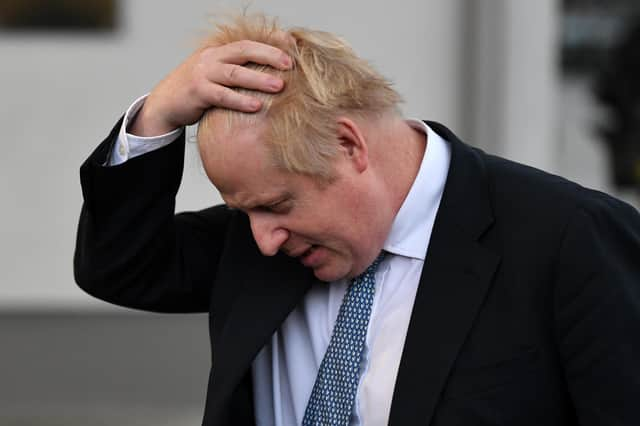Is Boris Johnson a bad person? - Professor Anthony Lang


Public anger at these episodes has bubbled up over the last few weeks. Coupled with the Prime Minister’s previous reputation for lying- and reports that he authorized an airlift of animals from Afghanistan over saving the lives of people – only reinforces his reputation as a morally bankrupt individual.
But does the moral character of Boris Johnson matter? His defence thus far has been that he acted within the rules concerning parties (or events?) at Number 10 Downing Street. In addition, he has consistently argued the public should pay more attention to the accomplishments of his government rather than engage in moralistic condemnations of his behaviour.
Advertisement
Hide AdAdvertisement
Hide AdPolitical philosophy can help us here. Traditionally, there are three ways to think about morality: First, ethics can be reduced to following rules. If the rules are sound, we are morally obliged to follow them. Second, being moral is about creating the best possible outcomes. The most famous version of this approach is utilitarianism, made popular by the British public intellectual, John Stuart Mill. Politicians often deploy both of these justifications. Simply following the rules or focusing on achievements washes away sins.
There is a third option, however, one that has deep roots in the history of political thought. Sometimes called virtue ethics, this approach evaluates not actions, rules or consequences, but character. Character can be a slippery concept, of course, but the virtue ethics tradition sets out standards by which a person’s character can be evaluated. Some are obvious, such as honesty, moderation, kindness, and courage. Others are less obvious, though no less important, such as probity, justice, and magnanimity. The virtue ethics tradition also includes what some philosophers call intellectual virtues, or being open to new ideas, creativity, and rigour.
Together, all these virtues are to be governed by one overreaching virtue, which is sometimes called prudence, but might be better called wisdom. This virtue is the ability to bring all the virtues together and act correctly in situations that we might not expect.
How does this philosophy lesson help us in evaluating the Prime Minister? Johnson believes he can escape censure by appealing to rules and consequences. Many of his supporters, both inside parliament and outside, have turned to rules and consequences to defend him.
But his real failing is his moral character. He has lied, or at least bent the truth. He has failed to display courage in being only interested in saving his own skin as opposed to owning up to his failings.
And he has, despite his claims to ‘follow science’ in making decision on the pandemic, recently acted to satisfy his back benchers in lifting restrictions rather than actually paying attention to his scientific advisors. This might not seem to be a matter of morality, but the virtue ethics tradition emphasizes the importance of how we acquire and evaluate knowledge. The Prime Minister has put his own survival ahead of acquiring, evaluating and acting on the existing knowledge about the pandemic.
Why does this matter? Because Prime Ministers will be faced with unknown situations, ones where there are no rule and the results of which are also unclear. We need to trust that our leaders will have the character to understand and act in complex situations.
To highlight this tradition of thought is not to dismiss rules or consequences when considering moral behaviour. Indeed, having a morally upright character means paying attention to what the rules tell us to do and paying attention to the consequences of our behaviour.
Advertisement
Hide AdAdvertisement
Hide AdIndeed, one of the most important theorists of the virtue ethics tradition is the Ancient Greek philosopher Aristotle. He laid out the virtues, both practical and intellectual, that continue to define this way of seeing the world. As a student of classics, Boris Johnson must know his work. Aristotle famously argued that a good person is one who can both rule and be ruled. That is, a morally correct character is someone who understand the importance of following the rules while also paying attention to how we make those rules.
The Prime Minister might want to remember his Classical education. And, the British public might want to think carefully about supporting a politician whose moral character is so morally flawed. We avoid such deep moral questions at our peril.
Professor Anthony Lang, School of International Relations, University of St Andrews